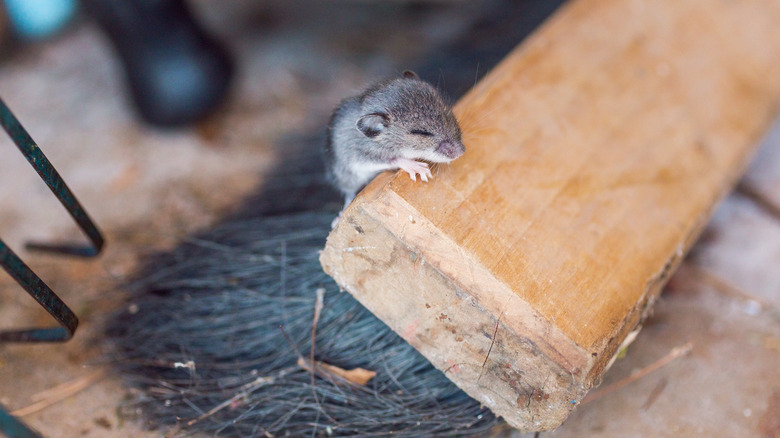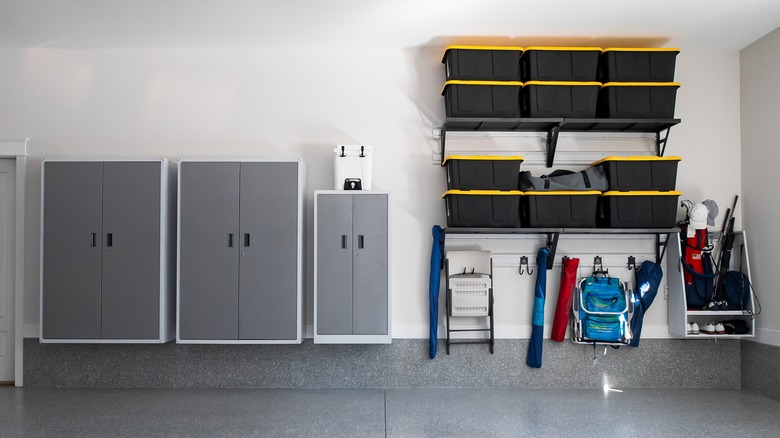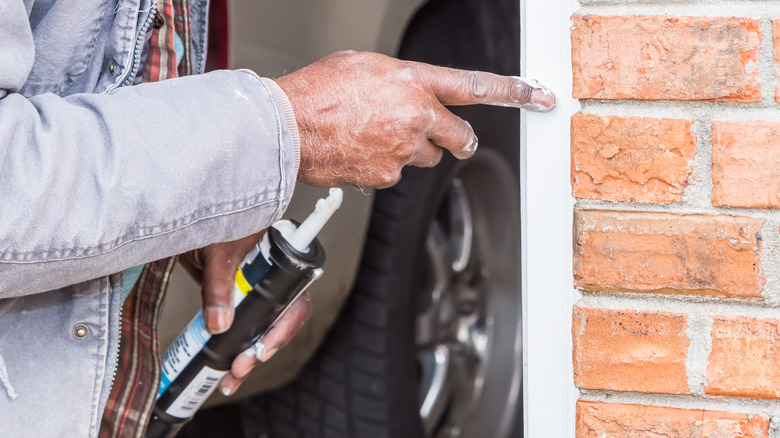Tips To Keep Pests Out Of Your Garage Storage Cabinets
We may receive a commission on purchases made from links.
Having a garage makes life more convenient in many ways — it gives you more storage space and keeps your car safe from the elements — but then there are the pests. Garages are ideal for ants, spiders, roaches, mice, and sometimes even squirrels or raccoons to make themselves at home, chewing through your things and snacking on the morsels you leave around. Garages are often easier for pests to access than your home, and there's less human foot traffic to keep them at bay. There are often plenty of attractive hiding spots, low light, and high humidity that make the space an ideal area for these pests to live in. By decluttering, using secure storage products, and removing the moisture from the air, you can keep your garage storage cabinets pest-free.
Pests that are lurking in your garage can damage your belongings as they chew through items and make nests. They can also transport diseases and leave unsanitary waste. These pests may eventually venture into your home as well, so it's important to make your garage as pest-proof as you can. Your cabinets, which are often where most of your belongings are stored in this area, are a major part of that. If you've noticed signs of pests inside your garage cabinets, like droppings, nests, chew marks, or the pests themselves, it's time to take action.
How to pest-proof garage cabinets
Pests are attracted to clutter, as that mess often contains food sources, nesting materials, and hiding spots. Keeping your garage cabinets meticulously clean and organized is important to deter pests. Get rid of cardboard boxes and paper bags in favor of secure storage solutions.
Mice can also easily chew through cardboard, wood, and even plastic. Therefore, the best garage cabinet systems for preventing pests are made of sturdy metal, with a locking door and gap-free seals. Freestanding storage units with solid bottoms and legs that lift the cabinets off of the floor are preferable. Overhead storage or shelves high up on the wall are also a good choice, as they're more of a hassle for creatures to get to. However, you can also work with what you already have, even wood cabinets. Items inside the cabinets should be placed in a tightly sealed metal, glass, or thick plastic storage container. Ensure you seal up anything that may attract pests, including pet food, seeds, papers, clothes, and so on. Alternatively, avoid storing pet food in your garage and keep edible items inside instead.
Certain bugs are attracted to moisture as well, so running a dehumidifier in your garage is also a good deterrent. On the other hand, if you don't want to use the extra electricity, try placing a moisture-absorbing product like DampRid inside each cabinet. Remember to replace these regularly.
Keep pests out of the rest of the garage
A few more steps are key to fully pest-proofing your garage cabinets. Before pests can get to your garage cabinets, they have to make it into the garage itself. So it's helpful to remove as many of those entryway points as possible, keeping in mind that mice can fit into spaces as small as a quarter-inch and roaches can fit through a sixteenth of an inch. You may not be able to make your garage airtight, but you can make it more difficult for pests to get into. Seal any cracks in the walls with caulking, and weatherstrip or rubber seal gaps beneath the garage door or around the windows. Keep the garage door closed when you're not using it.
Pesticides are another solution, especially if you've previously seen signs of pests in your garage. For bugs, spray an insecticide along the outside perimeter of the garage as well as the bottom baseboards. Baits and humane traps, placed in and under cabinets or anywhere you've seen signs of pests, are also helpful for getting rid of roaches, ants, and mice. Pesticides often aren't safe around pets, children, or food, so make sure to read the directions carefully, use them with caution, and consider using natural products instead, like diatomaceous earth. Finally, if your garage is already infested and your own efforts aren't making progress, call a pest control professional for help.


